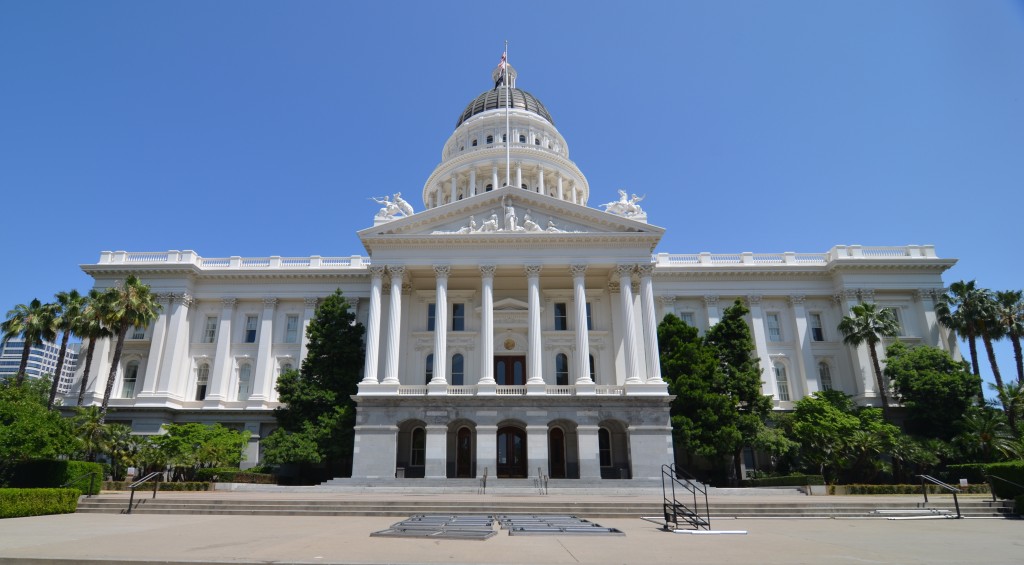
End of SB 1146 Threat to California Religious Colleges—For Now
Stanley Carlson-Thies October 7, 2016
California Governor Jerry Brown signed SB 1146 into law on Sept. 30, 2016—but by then the bill had been radically rewritten to remove its powerful threats to religious colleges and universities that hold minority views on marriage and human sexuality. And yet the final version may itself be damaging, and there is every likelihood that something like the original bill will be pressed again in the California legislature.
As enacted, SB 1146 requires California higher education institutions that have an exemption under the state Education Code or the federal Title IX—exemptions that help preserve their distinct identity and allow them to follow the moral teachings of their respective religions—to widely publicize those exemptions and the conduct standards that students, faculty, and staff must respect. The new law also requires that exempt institutions send all documentation pertaining to their exemptions to the state Student Aid Commission—and that the Commission post on its website a list of all exempt institutions and their reasons for seeking the exemptions.
Religious colleges that had strongly protested earlier versions of the bill said the final version was acceptable. After all, their religion-based moral convictions and conduct standards are already public information, part of the respective institutions’ distinctive campus cultures and elements of their religious identities.
Being named on the California Student Aid Commission website, however, is troubling. A major reason for the strong opposition to earlier versions of the bill was that institutions with minority sexuality standards would be out of bounds for students with Cal Grants—substantial California state scholarships that provide vital financial assistance to many minority and first-time students, many of whom choose religious colleges. Putting the exempt institution list on the Student Aid Commission’s website keeps alive the idea that an institution that is exempt probably should be off limits for students supported by state scholarships. (Another major reason for the strong opposition was the original proposal to radically narrow the exemption in the law from protecting all religious colleges and universities to only shielding seminaries and other programs specifically dedicated to religion and religious professionals.)
That list of exempt institutions on the Commission website is troubling for another reason. The federal government already maintains a similar list—the Office of Civil Rights of the Department of Education has created webpages listing all of the religious colleges and universities that have requested or received religious exemptions from Title IX, the federal law that requires education institutions that receive federal support not to discriminate on the basis of sex. Title IX has always had a religious exemption, and an increasing number of religious institutions have sought exemptions as the federal government has reinterpreted the ban on sex discrimination to also ban gender-identity and sexual-orientation discrimination.
Such “shaming” webpages were first proposed by the Human Rights Campaign, followed by a number of US Senators. The California exemption pages will not be posted until the 2017-18 school year, so cannot be examined yet. The federal exemption pages do have the character of shaming rather than just information-sharing, even disregarding the original impetus. Consider: the possibility of an exemption for religious reasons to nondiscrimination requirements is not a departure from Title IX but rather an integral element of the law, designed into the law to protect the freedom of religious exercise guaranteed in the First Amendment. The Department of Education routinely grants religious exemption requests, as indeed it must: the requests are legal, not exceptions to legality.
Moreover, Title IX provides for a wide variety of other exemptions, too, including for fraternities and sororities, the Boy Scouts and Girl Scouts, YMCA and YWCA, and other sex-differentiated institutions. Yet none of these are marked out for special public attention on special webpages.
Nor is the Department of Education listing of exempt institutions neutral in effect. Rather, it serves as federal support for efforts by the Human Rights Campaign, Campus Pride, and others to delegitimize religious higher education as bigoted and discriminatory.
The author of SB 1146 says that his bill simply intends to “shed light on the appalling discriminatory practices LGBT students face at private religious universities in California. These provisions represent critical first steps in the ongoing efforts to protect students from discrimination for living their truths or loving openly.” That’s a forewarning: the bill signed into law is just an early phase of a long process.
A question for the Senator: should not religious colleges and universities also be able to live their truths openly, without fear of penalty? Prospective students, faculty, and staff have many choices in California. Why limit those choices, making it difficult for students, faculty, and staff with minority religious convictions and moral standards to find institutions suitable for them?
